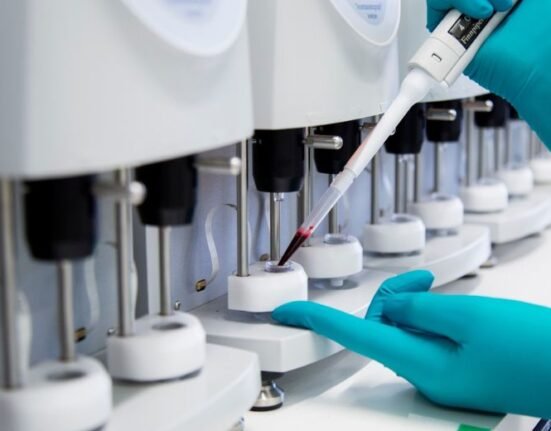HQ Team
January 12, 2023: insulin, resulting
The findings may provide researchers with a target to help prevent or delay diabetes in some at-risk people.
When a person has too much body fat, it signals beta cells in the pancreas to secrete more insulin. When insulin levels become elevated and remain high, the body can become resistant to insulin, and eventually, the beta cells that secrete insulin can fail, leading to diabetes.
“Between 30 million and 40 million people in the United States have Type 2 diabetes,” said senior investigator Clay F. Semenkovich, director of the Division of Endocrinology, Metabolism and Lipid Research at the School of Medicine.
“Another 90 million to 100 million have risk factors that make them likely to develop Type 2 diabetes in the future.”
“Many at risk for diabetes have elevated insulin levels, a hallmark of insulin resistance and a signal that trouble may be brewing. Suppose we could intervene before they develop diabetes. In that case, we might be able to prevent significant health problems — such as heart disease, chronic kidney disease, nerve damage, vision loss and other problems — in many people.”
Palmitoylation
Semenkovich and his team found that the overproduction of insulin involves a process called palmitoylation. It is the process by which cells attach the fatty acid palmitate or salt to proteins.
The researchers found that when this fatty acid palmitate is not removed from proteins in beta cells, diabetes is the result.
Researchers examined tissue samples from people who were thin or overweight and with and without diabetes. They found that people with diabetes were deficient in an enzyme that removes palmitate from beta cells.
“They hyper-secrete insulin because this process goes awry, and they can’t appropriately regulate the release of insulin from beta cells,” said Semenkovich. “Regulating insulin release is controlled in part by this palmitoylation process.”
The research team also genetically engineered a mouse that was deficient in the enzyme called APT1, an enzyme responsible for palmitate removal from proteins. The engineered mice developed diabetes.
Impaired APT1 function
The researchers worked with the university’s Center for Drug Discovery to screen and identify compounds that can increase the activity of the APT1 enzyme as an impaired APT1 function contributes to diabetes risk.
“We’ve found several candidate drugs, and we’re pursuing those,” Semenkovich said. “We think that by increasing APT1 activity, we might reverse this process and potentially prevent people at risk from progressing to diabetes.
“There are several ways that Type 2 diabetes may develop,” he said. “This enzyme is not the answer, but it’s an answer, and it appears we have some promising tools that might keep some people with prediabetes from developing diabetes.”








